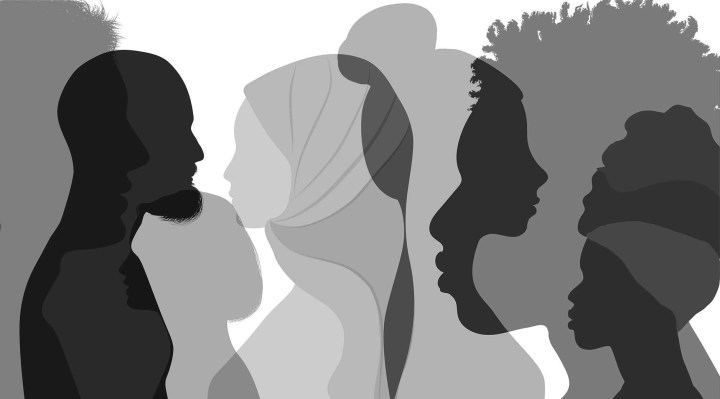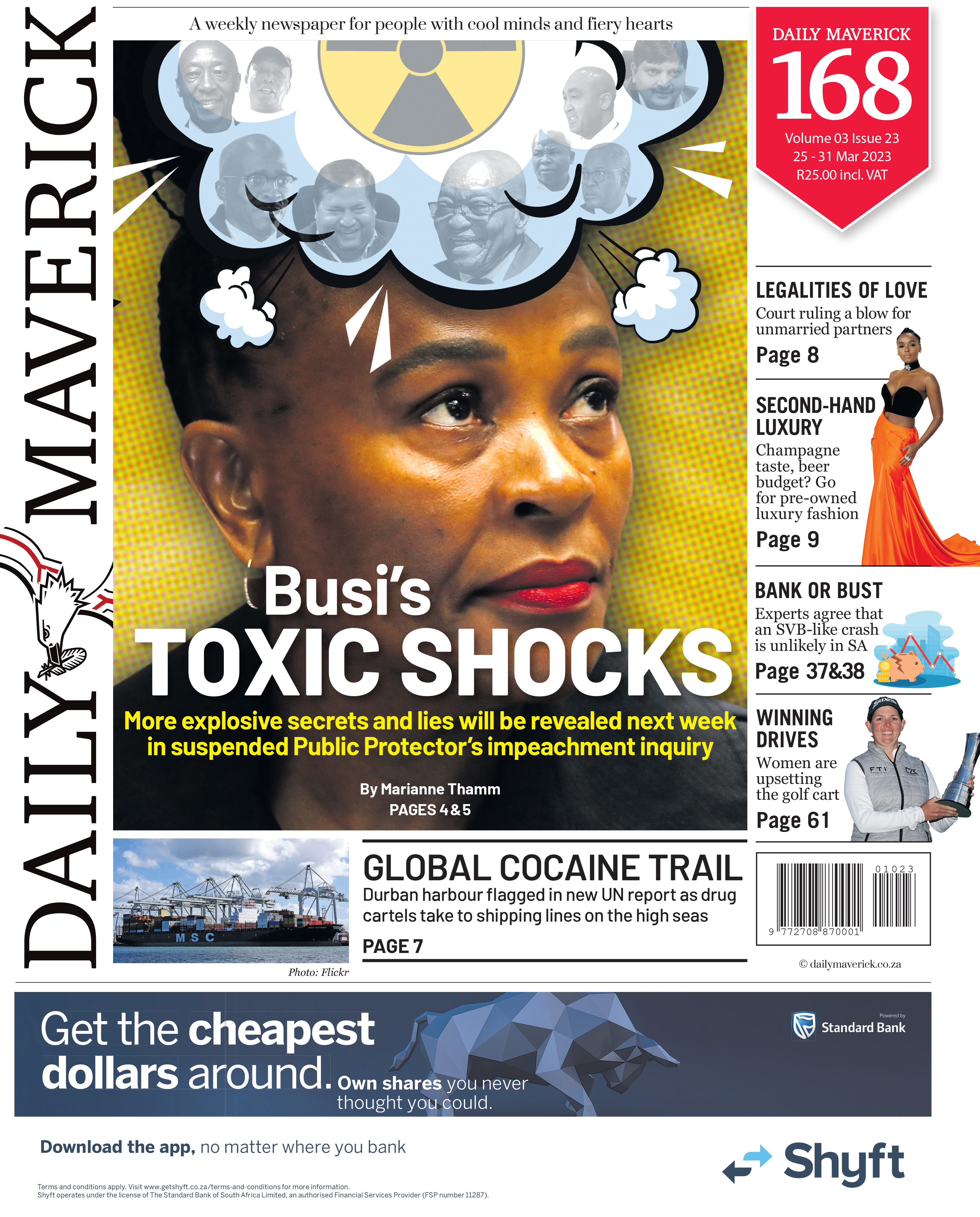LETTER FROM THE DM168 EDITOR
The Bill of Rights, South Africa’s moral compass that may yet redeem us

I revisited our Bill of Rights this week and it gave me some succour to know that even though it could be seen as just another idealistic document, if we the people of South Africa do all we can to make sure that those rights are lived and enforced, we will go a long way to making this country a much better place for all who live here.
Dear DM168 readers,
On Tuesday, we had a holiday to commemorate Human Rights Day, marking 21 March 1960, the day the police opened fire on people who had gathered in Sharpeville to protest against the pass laws, killing 69 and injuring 180.
That awful day was before I was born, but I grew up in the dying decades of apartheid, when more than 500 people were killed during and after the protests against Bantu education in Soweto in 1976.
Anyone who lived under the jackboot of apartheid will know why our Constitution’s Bill of Rights is such a precious lodestar to guide us into a more just and peaceful future.
We breathed fear, but fought for our human rights regardless. Activists were arrested at every turn, pass laws limited the movement of black people, and families were torn apart by the “pencil test”, that savage tool of the Immorality Act.
The bannings, beatings, detentions without trial, deaths in detention, the censorship and closing of newspapers, Bantu education, Bantustans, separate amenities, the whole absurd, brutal nightmare conjured up by highly educated men such as Daniël François Malan, JG Strijdom and Hendrik Verwoerd and their cohort of Afrikaner Nationalists who were elected time after time from 1948 to 1989 by most white South Africans.
Today we have another Nationalist party, The African National Congress, that has been voted into power for more than two decades, from 1994 to 2017, by the majority this time round, which, despite being the architect of a Constitution based on human rights, is serving the interests of the party, its various partners in big and small business, and its cohort of elite insiders at the expense of the majority of the people.
Under this government, on 16 August 2012 we witnessed the Marikana massacre, when police fired on mineworkers striking for better wages and dignified living conditions for their families, killing 34 and seriously injuring 78.
In 2016, we witnessed the callous deaths of 144 former Life Esidimeni patients who were moved by the Gauteng Health Department from a private psychiatric facility to cheaper, unlicensed and grossly under-resourced community-based facilities.
Under this government, despite a commitment by the Department of Basic Education to replace 3,000 pit toilets in schools, just this month a four-year-old girl’s body was found in a pit latrine at a primary school in Glen Grey, in the Eastern Cape.
This is heartless and appalling, but we need to remind ourselves that our Constitution’s Bill of Rights distinguishes us from that brutal republic we were before 1994.
This Bill of Rights is a wondrous ideal that echoes the United Nations’ Universal Declaration of Human Rights, signed in 1948 after the end of World War 2. The formidable Eleanor Roosevelt managed to get several countries on both sides of the Cold War to agree to some fundamental, basic universal rights that should be applicable to all citizens of the globe wherever they might find themselves.
I revisited our Bill of Rights this week and it gave me some succour to know that even though it could be seen as just another idealistic document, if we the people of South Africa do all we can to make sure that those rights are lived and enforced, we will go a long way to making this country a much better place for all who live here.
There are a few among us who yearn for those days when the South African Police, the South African Defence Force and the death penalty kept criminals, agitators and protesters at bay and borders safe. The days of Eskom always keeping the lights on for white suburbs and business. Days of braaivleis, rugby and sunny skies when our country was run with an iron fist, with racial segregation laws, when Black people stayed on the 13% of the land allocated to them for ownership through the 1913 Natives Land Act and the 1936 Native Trust and Land Act of South Africa. There are some who believe that the failings and corruption of the ANC government are due to the incapability of black people in general to govern or lead.
There are also those among us who think everything that has gone wrong in our country over the past 30 years is because Nelson Mandela bowed to pressure from the white men who were previously in charge. That the founding father of our democracy pushed the notions of reconciliation and rainbow nation above retribution and redistribution. That if he did not sell out to White Monopoly Capital and stop the revolution, all black people would have a piece of land to live on and to farm; all mines, banks and commanding heights of the economy would be nationalised and serving the people.
These are the radical extremes in our country, views you can find in different twars and Twitter threads, on websites, at dinner tables and in webinars, with their own rings of applause, with their own followers and likes.
These are views I absolutely do not agree with but which are out there, tearing at whatever thread of common good we have left in our social fabric.
Sometimes I wonder whether we who work in the media fan the flames of these extremes, by omitting the voices of some, amplifying those of others.
I am not immune to the fact that we at Daily Maverick are perceived by some as being partisan to a neo-liberal Western narrative, a White Monopoly Capital narrative, excluding the voices of the poor or under-resourced, the left and the right.
It is my belief that we can only move forward by listening and debating a diversity of views and coming to conclusions based on facts presented in support of or against these views, not by chatting in circles of approval with our friends.
The right to freedom of expression and information is not just a right for those who can afford access to platforms such as ours to express themselves or be informed. It’s a right for all.
Our polarisation as South Africans, where we only listen to those who share our worldviews or belong to the same political parties, class or racial category, which has its roots in our divided past and is exacerbated by our troubled corrupt, collapsing present, is definitely not what the noble writers of our Bill of Rights imagined for our country.
Is it not time to pop the bubbles, break down the barriers and start listening and talking with open minds and hearts, so we can once again dare to dream of a future that works for all? And start the work that it will take to realise that dream?
In this week’s lead story in DM168 Marianne Thamm delves into the Public Protector impeachment hearings in Parliament and explores the question of where exactly Busisiwe Mkhwebane fits into the greater Zuma State Capture nexus.
Write to me about your views on Mkhwebane or what you think we can do to address the polarisation in our country at [email protected]
And if you are in Gauteng this weekend, come and visit our Daily Maverick stand at the Constitution Hill Human Rights Festival, where a few us in the DM team will be ready to listen to you.
Yours in defence of the right to be human,
Heather





















 Become an Insider
Become an Insider
We have to live in hope that sanity will prevail. We have hit rock bottom and the only way is up. No country in the world is perfect and there are plenty of examples in Africa where this is the case. We need to make sure we don’t go the same way as Nigeria or Zimbabwe. Everyone who is eligible to vote must do so next year. It’s not a matter of race, it’s a matter of survival.
Thank you for your thoughtful and encouraging piece. You begin by referencing “Afrikaner Nationalists who were elected time after time from 1948 to 1989 by most white South Africans”. You later address those who think Mandela sold out to white monopoly capital — ie those who analyse society in Marxian terms. There is a strong connection between these two themes. Many think that Whites voted as they did simply because of the greed. That is far too simplistic. Their votes were largely based on fear – fear of what they empirically observed all over post colonial Africa: USSR backed experiments in African socialism that had degenerated into dictatorships, repression, inefficiency, corruption, collapse of infrastructure, chaos, etc. Indeed, the USSR itself was characterised by dictatorship, repression and inefficiency. The fear was exacerbated by the apparent embrace of these Marxist based ideologies by the ANC and its allies. And the extent to which our country has followed a similar trajectory affirms that those fears were not entirely unfounded. You are right. Thanks to Mandela, our constitution offers the possibility of moving away from those suicidal ideologies. For as long as the ANC / EFF and their allies still flirt with such ideologies, they I hope and pray that voters will be wise enough to keep them out of government.
We must be thankful for our human Rights entrenched in the Constitution and do everything we can to protect them. At the same time it is only the beginning of the road to a sustainable society. In his speech on Human Rights Day at De Aar the President sang the country’s praises because those receiving social grants of one sort or another had increased from two million in 1994 to 18 million today! What a disaster for the eighteen million. The world political arena has become so complex. The US with its liberal democratic constitution has become a highly militarized interventionist state, deeply divided and filled with hate and in which inequality is increasing. Russia with its authoritarian constitution has become a brutal state dominated by wealthy oligarchs. The country that finds the route to generating a healthy economic surplus that is used to empower the poor rather than increase their dependence by continuing to exclude them, will open the way to new world most thinking people dream about.